
How to improve access to care and aid for people living with a handicap in a humanitarian context?
Benoit Finck
A screening of the film "Agir contre l’exclusion" followed by a debate, April 7th, 2022, at MSF and online. The debate was translated simultaneously into sign language and English. The film, shown as a preview, has been cut from the video: it is available in replay on the France 5 website.
Doctor Jean Dragon, who wrote Les silencieux. Chroniques de vingt ans de médecine avec les sourds (2008),The silent. Chronicles of twenty years of humanitarian medicine with the deaf was the first one to open, in 1995, a reception service in sign language in a hospital in Paris. At that time, in the middle of a HIV pandemic, the health authorities noticed how badly the deaf were isolated. According to Jean Dragon, “deaf people were dying from Aids because they had to call members of their family to translate during consultations. Therefore, they preferred not to see doctors. Or when they saw them and learned their diagnosis, they did not know what Aids was.”https://www.sourds.net/2011/01/10/la-langue-des-signes-veut-entrer-a-lhopital/
Louise Limela is the Coordinator and Facilitator of the OCB association network for Médecins sans Frontières in the Democratic Republic of the Congo. In 2020, she tried to understand to what extent the inhabitants of Kinshasa were informed about the Covid-19 pandemic. She noticed that several groups were excluded because of a lack of information: persons with reduced mobility, the visually impaired, the deaf, people with albinism, widows, and orphans. Louise Limela then started to work with local associations of people with disabilities to train “peer educators”: members of these organisations who were able to reach these persons. As a result of the success of this work and in response to the requests of the beneficiaries she extended her training activities to HIV prevention and family planning. Before the end of 2022, MSF WACA (West & Central Africa) will take over this initiative with the purpose of extending it to its programs in Ituri and North Kivu.
The documentary Agir contre l’exclusion (26 minutes, Point du Jour producer) reports Louise Limela’s work with these groups, with a strong focus on deaf people. It was screened during this CRASH conference and followed by a debate: how to improve access to care and aid for people living with a handicap in a humanitarian context?
Opening:
- Benoît Finck, the film director.
Debate, with the participation of:
- Louise Limela, the Coordinator and Facilitator of the OCB association network in the Democratic Republic of the Congo.
- Patrice Vastel, Coordinator of the international project on the inclusion of people with disabilities at MSF.
- Gregory Keane, Psychiatrist and Mental Health Advisor at MSF.
- Guillaume Le Gallais, director of the I.P.I.D.V. (Initiatives Pour l'Inclusion des Déficients Visuels),Initiatives for the inclusion of the visually impairedformer Operations Director and board member of MSF.
The documentary was broadcast on RTS (April 23th) and France 5 (L'oeil et la main documentary collection, April 25th).
To cite this content :
Benoit Finck, “How to improve access to care and aid for people living with a handicap in a humanitarian context?”, 7 avril 2022, URL : https://msf-crash.org/en/conferences-debates/how-improve-access-care-and-aid-people-living-handicap-humanitarian-context
If you would like to comment on this article, you can find us on social media or contact us here:
ContributePast events
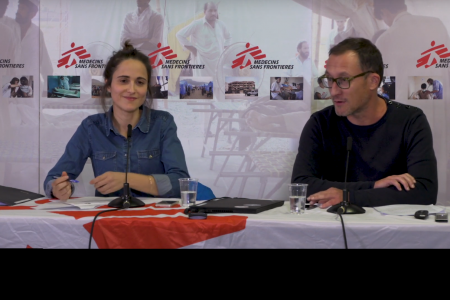 Conference
Conference
Motivations for mass violence: different interpretations
10/03/2019 - 06:00 PM 08:00 PMConference – debate, Thursday, 3 October 2019, 6-8pm, 1st floor meeting room at MSF, 8 rue Saint Sabin. Streaming and simultaneous translation into English available.
What turns ordinary men into killers? The CRASH team invited you to a conference – debate with the sociologist and historian, Nicolas Mariot, author of an article entitled « Faut-il être motivé pour tuer? Sur quelques explications aux violences de guerre » (Genèses, n°53, 2003, p. 154-177) and books such as “Face à la persécution. 991 Juifs dans la guerre" (with Claire Zalc, Paris, Odile Jacob, 2010), “Tous unis dans la tranchée ? 1914-1918, les intellectuels rencontrent le peuple" (Paris, Seuil, 2013). Nicolas Mariot presented two different interpretations of motivations for mass violence in the 20th century, drawn from a series of studies and surveys on the subject.
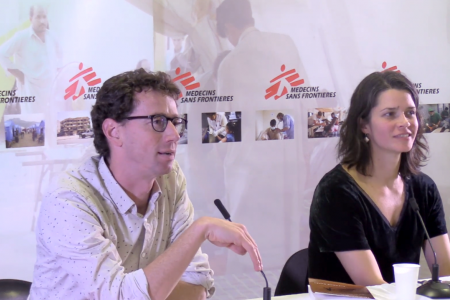 Conference
Conference
Third-Worldism and Sans-Frontiérisme 1954-1988
04/11/2019 - 06:30 PM 08:30 PMEleanor Davey, historian of ideas and humanitarianism, senior lecturer at the Humanitarian and Conflict Research Institute, University of Manchester, discusses her book, Idealism Beyond Borders. The French Revolutionary Left and the Rise of Humanitarianism, 1954-1988, devoted to the intellectual history of sans-frontiérisme and Third-Worldism, in France, from the Algerian war to the early years of Médecins Sans Frontières.
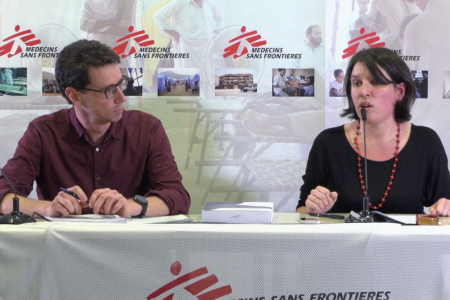 Conference
Conference
Healing foreigners in France: The State and the civil society organisations from the 80s to the 90s
12/17/2018 - 06:00 PM 08:00 PMThe CRASH team invited you to the debate-conference “Healing foreigners in France: The State and the civil society organisations from the 80s to the 90s” on Monday 17th of December 2018 from 6 to 8pm, in the 1rst floor room at the 8 rue Saint-Sabin. We hosted Caroline Izambert, who recently defended, at the EHESS, her PhD thesis focusing on the foreigners’ access to healthcare in France. Her title: “Heal foreigners?” The State and the civil society organisations for the health coverage of the poor and foreigners in France from the 1980s to the present day.
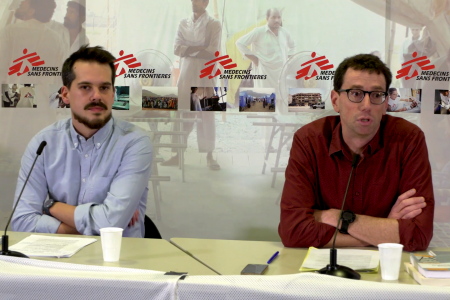 Conference
Conference
Borders and Hospitality
11/26/2018 - 06:00 PM 08:00 PMConference/debate with Benjamin Boudou, political scientist and researcher at the Max Planck institute.
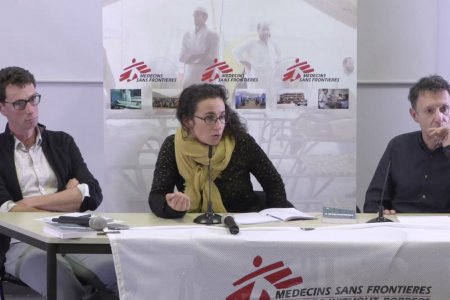 MSF-Crash
Conference
MSF-Crash
Conference
Immunization: new perspectives on vaccines - Conference with Lise Barnéoud
12/05/2017 - 06:00 PM 08:00 PMWho profits from vaccination? Individuals? Society? Companies? Is vaccination efficient? Is it dangerous? Profitable? What are the factors influencing public opinion in this domain? Lise Barnéoud, science journalist and author of Immunisés ? Un nouveau regard sur les vaccins, has engaged in an investigation revealing multiple - and sometimes contradictory - realities observed in the French vaccination sector. She has carried out her investigation from three distinct viewpoints: the one of a mother who needs to decide whether to vaccinate her children or not; of a journalist leading an enquiry; and of a scientist analyzing how facts are built.
Lise Barnéoud was a Crash guest speaker at a conference on vaccination held on December 5, 2017. A discussion with Epicentre, Crash and the MSF Medical Department allowed us to exchange views on vaccinal policy, which remains a cornerstone of MSF operations and a recurring subject of discussion and controversy.
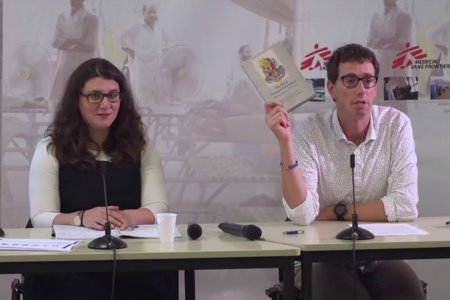 MSF
Conference
MSF
Conference
Humanitarian anthropology : conference with Sharon Abramowitz
10/23/2017 - 06:00 PM 08:00 PMSharon Abramowitz is an anthropologist and a visiting researcher at the Department of Anthropology at Rutgers University, co-editor of recently published Medical humanitarianism. Ethnographies of practice. She has devoted much of her work to responding to epidemics - most recently in Ebola, and in West Africa, Liberia in particular.
During the conference organized by MSF-Crash on 23 October 2017, she discussed the contribution of medical anthropology to humanitarian action as well as her latest book and most recent projects.
